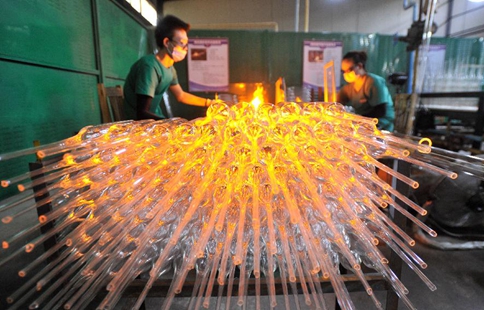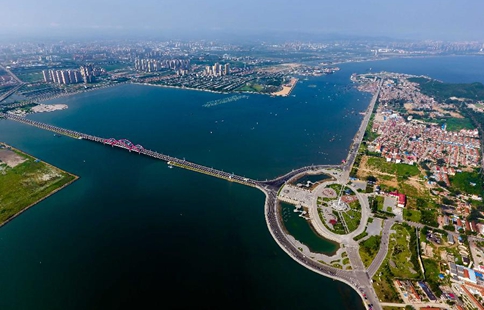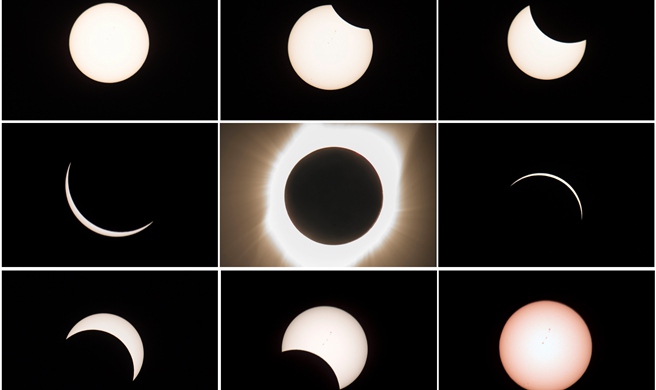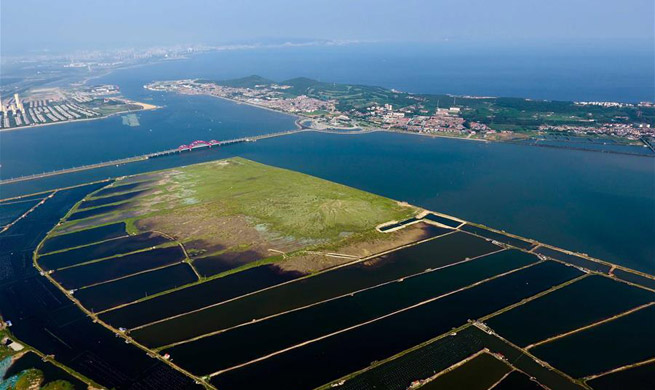JERUSALEM, Aug. 22 (Xinhua) -- Israeli Prime Minister Benjamin Netanyahu is travelling to Russia on Wednesday to meet with Russian President Vladimir Putin, amid recent increased tensions between the two countries.
Although the two leaders have met several times in the past two years, there still seems to be issues for them to iron out, as Israel is concerned with its northern border with Syria, where Russia has been heavily involved since it stepped in with direct military presence in September 2015.
Previous meetings were about coordination on how the two countries interact along the border.
This time, however, a minor diplomatic crisis surrounding the construction of a holocaust memorial site in Poland has the potential of overshadowing the meeting.
Russia accuses Israel of pushing it aside from the project even though former Soviet forces were part of liberating the concentration camp on Polish soil.
But this is not the main issue on the agenda, with developments in Syria being the main focal point.
Gideon Remez, a fellow of the Truman Institute at the Hebrew University of Jerusalem, characterizes the Israeli-Russian relationship as "problematic to begin with."
"Although in Israel, no leader will ever say that the relationship with Vladimir Putin's administration is anything less than idyllic," said Remez.
Israel and Syria are enemy states. Although they have not fought a war since Israel captured the Golan Heights from Syria in the 1967 Middle East war, relations have never been normalized.
Syria's internal strife has concerned Israel since it began. None of Syrian president Bashar Assad's opponents and possible heirs are favorable toward the Jewish state.
Israel's main concern is Iranian involvement in the Syrian civil war, as Iranian leaders have repeatedly threatened to wipe Israel off the map.
Having Iranian forces in such close proximity to Israel is not something Israeli leadership will be able to tolerate for long.
Iranian presence on Israel's northern border would eliminate the distance that currently makes a war between the two quite a challenge.
Recently, Iranian involvement in Syria has intensified as part of a mutual Russian-Iranian interest to fortify Assad's regime.
While Israel is ambiguous as to whom it wants to see at Syria's helm, Iranian participation is clearly contradictory to Israeli desire.
"Although the Russians are certainly not actively seeking a confrontation with Israel, if it comes to the crunch, I doubt very much that Russia is going to go out of it's way to support the Israeli cause against it's more important ally," Remez explained.
In recent years, there have been several reports that the Israeli air force has struck in Syria at militant groups transporting weapons to be used in future attacks on Israel.
With both air forces flying in Syrian airspace, a certain degree of cooperation is needed between Israel and Russia in order to avoid unwanted incidents.
According to a statement released before the upcoming meeting, the Israeli Prime Minister's office said the frequent meetings were aimed at preventing "friction between the Israeli and Russian air forces in Syria, so far successfully."
Netanyahu was referring to a recent cease-fire agreement sponsored by the United States, Russia and Jordan. He fears it paves the way for Iran to consolidate its presence in southern Syria near Israel's strategic border.
In an op-ed for the New York Times, Shmuel Rosner, political editor for the Jewish Journal, said the agreement is a "loss" for the Jewish state, adding that "Israel finds it hard to believe that the Russians can be swayed to contain the advance of Iran."
Moreover, Iran has been instrumental in the armament of Lebanon's Hezbollah.
Israel "strongly objects the Iranian military build-up, especially through Hezbollah in Syria," Netanyahu said in a speech days before the meeting.
Israel and Hezbollah fought a bloody war in 2006. Since then, it is believed that the militant group has significantly upgraded its capabilities with the help of Iran, making a future war more lethal than the previous one.
Russia is not expected to meddle in the Iranian-Syrian-Hezbollah triangle and Remez doubts that Russia will do much to push Iran back, despite Israeli concerns.
Iran and Russia share far more mutual interests than Israel with Russia, making it quite evident that Putin will be reluctant to make a big effort to curb Iranian activity in Syria, when Netanyahu asks him to do so.
"Israel and Russia are not on equal terms here," Remez said.
Netanyahu may arrive at the meeting with a series of requirements, but chances are the relationship will continue as it is, with Russia making no concessions toward Israel but continuing military coordination on Syrian airspace.

















